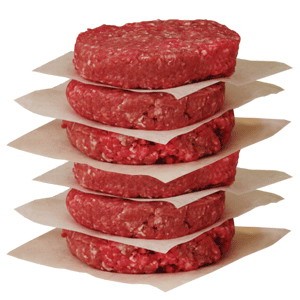Six major Shiga toxin producing Escherichia coli (STEC) serogroups: O26, O103, O145, O111, O121, and O45 have been declared as adulterants in federally inspected raw beef in the USA effective June 4th, 2012 in addition to the routinely tested STEC O157: H7. This study tests a real-time multiplex PCR assay and pooling of the samples to optimize the detection and quantification (prevalence and contamination) of six major non-O157 STEC, regardless of possessing Shiga toxins.
 To demonstrate the practicality, one large-scale slaughter plant (Plant LS) and one small-scale slaughter plant (Plant SS) located in the Mid-Western USA were sampled, in 2011, before the establishment of 2013 USDA laboratory protocols. Carcasses were sampled at consecutive intervention stations and beef trimmings were collected at the end of the fabrication process. Plant SS had marginally more contaminated samples than Plant LS (p-value 0.08). The post-hide removal wash, steam pasteurization, and lactic acid (≤5%) spray used in Plant LS seemed to reduce the six serogroups effectively, compared to the hot-water wash and 7-day chilling at Plant SS.
To demonstrate the practicality, one large-scale slaughter plant (Plant LS) and one small-scale slaughter plant (Plant SS) located in the Mid-Western USA were sampled, in 2011, before the establishment of 2013 USDA laboratory protocols. Carcasses were sampled at consecutive intervention stations and beef trimmings were collected at the end of the fabrication process. Plant SS had marginally more contaminated samples than Plant LS (p-value 0.08). The post-hide removal wash, steam pasteurization, and lactic acid (≤5%) spray used in Plant LS seemed to reduce the six serogroups effectively, compared to the hot-water wash and 7-day chilling at Plant SS.
Compared to the culture isolation methods, quantification of the non-O157 STEC using real-time PCR may be an efficient way to monitor the efficacy of slaughter line interventions.
Evaluating the efficacy of beef slaughter line interventions by quantifying the six major non-O157 Shiga toxin producing Escherichia coli serogroups using real-time multiplex PCR
Food Microbiology, Volume 63, May 2017, Pages 228-238, DOI: http://dx.doi.org/10.1016/j.fm.2016.11.023
KST Kanankege, KS Anklam, CM Fick, MJ Kulow, CW Kaspar, BH Ingham, A Milkowski, D Döpfer
http://www.sciencedirect.com/science/article/pii/S0740002016305639


.jpg) outbreak that almost wiped out the leafy green vegetable market in 2006.
outbreak that almost wiped out the leafy green vegetable market in 2006. Qualicon in Wilmington Del.; and BioControl Systems in Bellevue, Wash.; and others are in the works. For ground beef, they’re in late testing phase or became available in the past two months. In just the past two weeks, tests for the German E. coli O104:H4 variant hit the market.
Qualicon in Wilmington Del.; and BioControl Systems in Bellevue, Wash.; and others are in the works. For ground beef, they’re in late testing phase or became available in the past two months. In just the past two weeks, tests for the German E. coli O104:H4 variant hit the market.